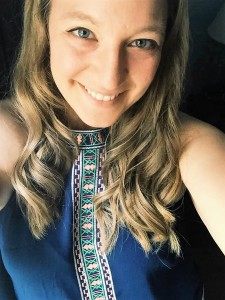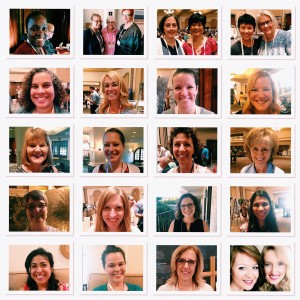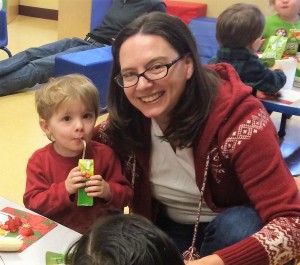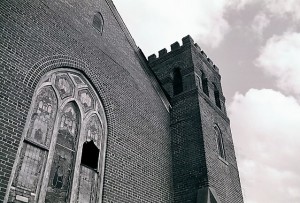 Bio: Rev. Cathy Kaminski is the lead pastor at Trinity Community Church in Cincinnati, OH. She is privileged to be among the female pastors in the Evangelical Covenant Church. This is a post to celebrate the 40th anniversary of the decision to ordain women in ministry.
Bio: Rev. Cathy Kaminski is the lead pastor at Trinity Community Church in Cincinnati, OH. She is privileged to be among the female pastors in the Evangelical Covenant Church. This is a post to celebrate the 40th anniversary of the decision to ordain women in ministry.
This past weekend the Evangelical Covenant Church celebrated its 131st annual meeting. Gather 2016 also marked 40 years since the Covenant decided to ordain women in ministry. 40 years of faithful women setting an example. 40 years of blazing new paths. 40 years of pioneers navigating waters of heart-ache, triumph, frustration, grace, and everything in between. On day one of Gather 2016, one speaker noted the reality that “The floor that you stand on is someone else’s ceiling.” This truth shakes me to my core. As a woman in ministry I often feel like I’m in an old boys’ club. People see my gender before they recognize my calling. My sexuality seems to define me more than my identity as an image bearer of God. I find myself trying to prove my place at the table instead of allowing the gifts God instilled in my personhood to speak for themselves. Yet, when I stop and listen to this profound statement I am instantly humbled. “My floor is someone else’s ceiling.”
As hard as my experience is, as difficult as my fellow sisters in ministry have it, we all stand on the ceiling of the faithful Christ-followers who have gone before. We have a long way to go, we have many more doors to open and walls to break down. But first, I’d like to take a moment and thank the women who went where no woman had gone before. I recognize them. Their sacrifice. Their bravery. Their faithfulness to follow God. And I am profoundly in their debt.
But God has used women as ambassadors for His Kingdom for way longer than 40 years. To do our Covenant sisters justice, we must go farther back. I hope we can see the ceiling that THEY stood upon. For generations and generations women have demonstrated giftedness and embodied calling even if not formally recognized by the church. And it is the culmination of their witness that brought the whole denomination to a place to celebrate God’s calling on our sisters.
Before women like Carol Nordstrom and Sherron Hughes-Tremper were ordained to the Evangelical Covenant Church, there were many who went before. Victoria Weltner was the first to graduate from North Park Theological Seminary in 1903. Dr. Mildred Nordren, the first single female missionary in the Covenant. We should know their stories and celebrate them. We should know women throughout Church history like Katherine von Bora, St Olga of Kiev, Matilda of Tuscany, Hedwig of Silesia, St Catherine of Siena, St Theresa of Avila. We should know women of the bible like Junia, Phoebe, Lydia, Chloe, Dorcas, Jael, Deborah, Tamar, Rahab. We should celebrate the stories of the unnamed women like the maidservant of Namaan’s wife, the woman at the well, Pharaoh’s daughter, daughters of Jephthah, Heman’s daughter, the widow who gave a tithe of two coins. Why don’t we know their stories? Why don’t we preach them on Sundays? Teach them in our Christian formation classes? Tell our sons and daughters about their courage and their faith? (If you don’t know one of these women, look them up and share what you find!)
Since before the birth of the Church women have stood on the ceilings of these women celebrated in scripture. Each generation building on the progress of the ones who went before. Today we tell the stories of these women. Today we celebrate the women in the Covenant. Today we pray for the next generation who will call our ceilings THEIR floors. In the picture above are the faces of 25 women serving the Covenant Church. Some missionary, others pastors, some directors, others lay leaders, but all ministers of the gospel of Jesus Christ. I hope we tell their stories. I hope we name and celebrated their gifts and callings. I hope we all recognize the potential to add to the collective witness of faithful women. Every woman stands on the witness of those who came before, may others one day stand on us!



